ASUS Ultimate GeForce GTX 550 Ti Video Card Review
The ASUS Ultimate GeForce GTX550-Ti
The NVIDIA GeForce GTX 550 Ti graphics card is going to be a popular gaming graphics card in 2011 due to it’s lucrative $150 price point. When the GeForce GTX 550 Ti was launched last week we noticed that ASUS came out of the gate with not one, but three cards for this series. ASUS once again custom
designed all of the ENGTX550 Ti cards and fitted each of them with their DirectCU cooler for lower noise and GPU temperatures.
The three ASUS GeForce GTX 550 Ti video cards:
- ASUS UL ENGTX550 Ti DC/DI/1GD5 – 1015MHz Core Clock – $169.99
- ASUS ENGTX550 Ti DC TOP/DI/1GD5 – 975MHz Core Clock – $159.99
- ASUS ENGTX550 Ti DC/DI/1GD5 – 910MHz Core Clock – $149.99
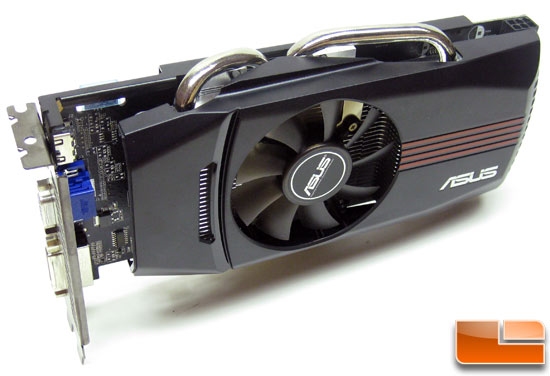
The card that we are looking at today is the ASUS UL ENGTX550 Ti DirectCU DC/DI/1GD5 video card! This card is also known as the ASUS Ultimate GTX550 Ti and with a core clock of 1015MHz it is the fastest clocked card that the companies offers for this series. This card is clocked 115MHz faster than the NVIDIA reference design as it runs at 900MHz on the core. For those that like numbers, this means that this card has a core clock that is 13% faster than the NVIDIA reference design! The ASUS card costs $20 more, which also happens to be a 13% difference. So, here is one of those rare situations where you pay for what you get!
| Core Clock | Shader Clock | Memory Clock | Shaders | MSRP | |
| NVIDIA GeForce GTX550 Ti | 900MHz | 1800MHz | 1026MHz | 192 | $149.99 |
| ASUS Ultimate GTX550 Ti | 1015MHz | 2030MHz | 1050MHz | 192 | $169.99 |
ASUS didn’t just stop there though as the company custom designed a sweet looking black PCB and slapped on their tried and true DirectCU GPU cooler that features a pair of 8mm heatpipes for great cooling performance. If you are a fan of factory
overclocked video cards this card won’t be letting you down anytime soon as it is one of the fastest clocked cards that money can buy. If you want even more speed from this card you can use the included
their SmartDoctor utility with VoltageTweak or any overclocking utility that you like using. The nice thing about the ASUS utility is that you can bump up
the GPU core voltage in just a few mouse clicks if needed. In case you need a refresher on what the specs are on the NVIDIA GeForce GTX 550 Ti video card are:
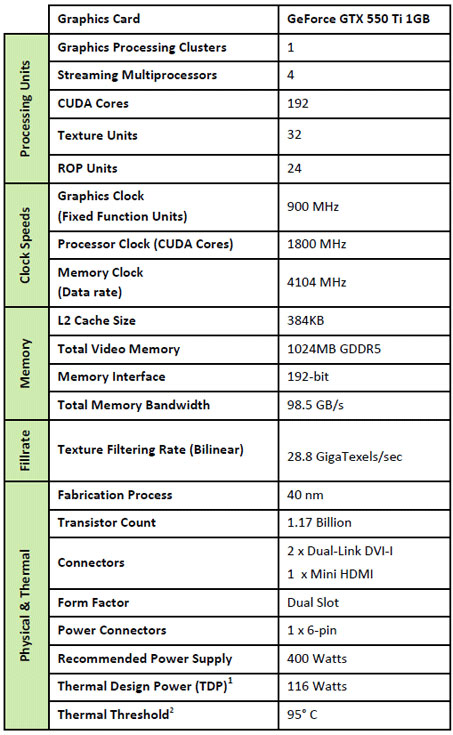
The front of the ASUS Ultimate ENGTX550 DirectCU looks pretty sharp, but ever person has different tastes.
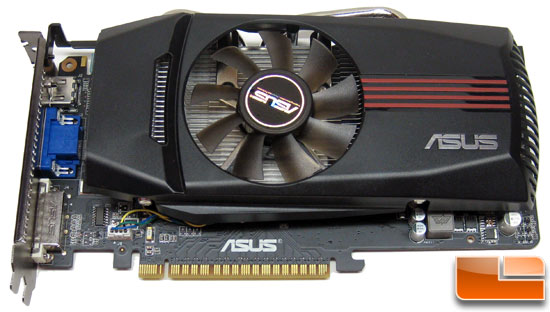
The card sports a black and red color scheme and we noticed that the bottom right hand corner of the PCB is rounded, which is something we don’t see too often. This fan design won’t exhaust all the hot air
from the inside of
your case since the shroud doesn’t extend all the way to the exhaust
bracket. The PCB of the ASUS custom designed card measures 8.875″ in length and stands at 3.875″ tall. It should be noted that the heat pipes extend the height of the card up to 4.55″ tall and the plastic fan shroud makes the card just shy of being 9″ long.
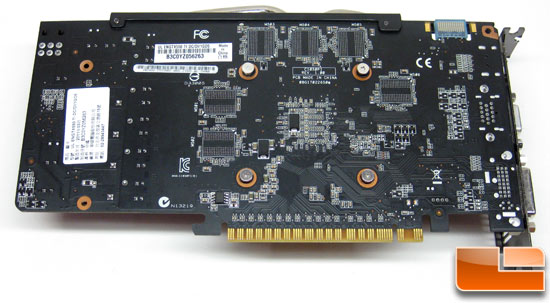
Flipping the ASUS GeForce GTX 550 Ti video card over we don’t find too
many interesting things as the card doesn’t have a back plate or any of the GDDR5 memory on the back of the PCB. The GeForce GTX 550 Ti graphics card does support
SLI and has a single SLI bridge located along the top edge of the
graphics card. The NVIDIA GTX 550 Ti series supports two-way SLI
configurations and can run NVIDIA Surround (2D) multi-panel gaming
technologies. That means you can buy two of these and run games at a resolution of 5760 x 1200 across three monitors for
example.
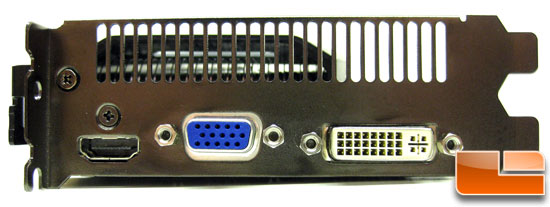
The ASUS Ultimate GeForce GTX 550 Ti 1GB GDDR5 graphics card has a single of dual-link DVI-I, VGA and a normal HDMI output. This makes the card pretty much universal and it is the first time that we have seen a VGA output on a $150 video card in some time!
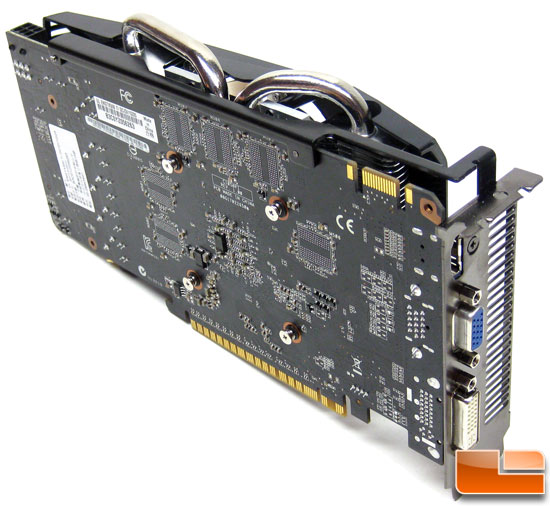
The ASUS Ultimate GeForce GTX 550 Ti 1GB video card requires a 400 Watt or greater power supply with a minimum of 24 Amps on the +12 volt rail. It also requires that the power supply has one 6-pin PCI Express power connector for proper connection. It should be noted that the NVIDIA minimum system power requirement is based on a PC configured with an Intel Core i7 3.2GHz CPU. If you want to run SLI we have been told that a 500 Watt or greater power supply is suggested by NVIDIA. NVIDIA refuses to give +12V requirements for SLI, which is strange since they suggest them for single card solutions. Notice that ASUS has the power header for their GeForce GTX 550 Ti comes off the top corner of the video card rather than the end of the card. This is great for those with small computer cases.

Comments are closed.